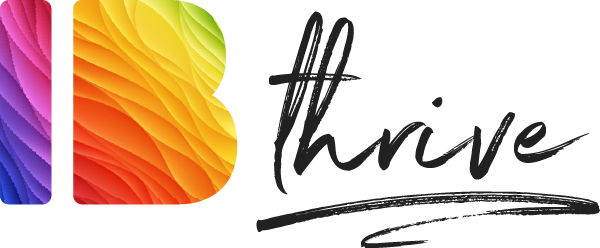BUILDING DIVERSE AND INCLUSIVE BUSINESSES with Zoe Holland
Hi! My name is Zoe and I run a business called Zing Learning, where I help organizations enhance inclusion and understand the importance of having a diverse workforce and positive social impact.
WHY DIVERSITY, EQUITY AND INCLUSION IS CRUCIAL FOR BUSINESS
DEI (Diversity, Equity and Inclusion) is crucial for organizations. It positively impacts business success, employee retention, and customer loyalty. Younger generations in particular place a strong emphasis on organizations that exhibit ethical and social responsibility. People want to work with and support businesses that align with their values.
HOW TO CONSIDER YOUR IMPACT ON LOCAL COMMUNITIES
Accessibility and representation are key aspects of DEI, and it’s essential to consider your business’s impact on local communities. CSR (Corporate Social Responsibility) and ESG (Environmental, Social, and Governance) practices demonstrate a company’s commitment to meaningful actions and ethics.
UNDERSTANDING UNCONSCIOUS BIASES AND THEIR INFLUENCE
Our unconscious biases are deeply ingrained from our life experiences, making it difficult to completely eliminate them. However, being aware of them can help us challenge our thinking, especially in business decisions where unbiased and fair judgments are crucial. Our brains process a staggering 11 million bits of information per second unconsciously, while our conscious mind can handle only 40 to 50 bits per second. Although unconscious biases serve useful purposes, they can also lead to mental shortcuts and stereotypes about others, formed through our upbringing, media exposure, and cultural influences.
TOOLS TO CHALLENGE UNCONSCIOUS BIASES
Changing unconscious biases entirely might be near-impossible, but raising awareness can make a difference. Tools like the implicit bias test from Harvard University can help us recognize our biases and provide an opportunity to interrupt our thinking before making biased decisions. Being aware of unconscious biases and their effects can help us make more informed and unbiased decisions, contributing to a more inclusive and equitable world.
TYPES OF UNCONSCIOUS BIASES AND THEIR EFFECTS
There are numerous types of unconscious biases, which marketers, politicians, and even well-meaning individuals can utilize. The halo effect occurs when we have a positive first impression of someone, while the horns effect occurs when we have a negative impression. These biases can impact how we treat and evaluate others in both positive and negative ways.
Another type of bias is confirmation bias. This leads us to seek validation for our beliefs while ignoring contrary evidence, which can reinforce stereotypes and hinder open-mindedness.
Let’s talk about affinity bias, which is when we’re naturally drawn to people who are similar to us. It could be shared interests, looks, ethnicity, or age. While this helps us make friends and build relationships, it becomes problematic when we surround ourselves only with people who are like us. Diversity of thought is vital to avoid echo chambers and broaden our perspectives. That’s why spaces like Impact Brixton are so valuable, as they bring together diverse mindsets and experiences.
NAVIGATING BIASES IN DECISION-MAKING AND ORGANIZATIONAL BEHAVIOR
Experience bias is often a big factor in decision-making. We tend to believe that experienced individuals are better at their jobs, even if evidence suggests otherwise. This bias can cloud our judgment when evaluating potential clients, suppliers, or collaborators.
Conformity bias can also be prevalent in larger organizations, where people blindly agree with senior members’ opinions to avoid conflict or challenging the status quo. We should watch out for this bias as it can hinder open-mindedness and diverse perspectives.
MICROAGGRESSIONS AND MICRO AFFIRMATIONS: CREATING INCLUSIVE SPACES
Microaggressions are small, everyday actions or comments that can create a sense of exclusion. They are often unintentional but can be hurtful nonetheless. Calling out or calling in such behavior helps to create a safe and inclusive space for everyone. Micro affirmations, intentional acts of support and kindness, counteract microaggressions and foster an inclusive environment.
THE IMPORTANCE OF INCLUSIVE LANGUAGE AND PSYCHOLOGICAL SAFETY
Inclusive language is essential in our communication. Using language that respects and includes all individuals, regardless of gender or background, helps create an inclusive atmosphere. Being aware of psychological safety is crucial too. We want people to feel accepted, respected, and able to learn from mistakes. This applies not only to employees but also to freelancers and consultants we work with.
PRACTICING INCLUSIVE BEHAVIORS FOR LASTING CHANGE
Practicing inclusive behaviors such as curiosity, authenticity, empathy, courage, and accountability helps us create an inclusive culture where everyone can thrive. Remember, learning and evolving is a continuous process, and being open to change ensures that we build a better, more inclusive world.
EMBRACING DIVERSITY OF THOUGHT FOR INNOVATION
Let’s talk about diversity of thought, a concept that delves into more than just physical differences. It focuses on the uniqueness of our minds, the way we think, approach work, and perceive things. Diversity of thought essentially means embracing different perspectives, experiences, and approaches to foster innovation.
Unlike echo chambers that stifle creativity, diversity of thought encourages an open space for diverse perspectives to thrive. It promotes inclusivity, breaks away from groupthink, and challenges the status quo. As a business owner, I understand the value of surrounding myself with individuals who bring diverse perspectives to the table. They keep me accountable, challenge my assumptions, and ultimately enhance the quality of our collective thinking.
When we collaborate with people from various backgrounds and beliefs, it naturally brings us together as a community. Take, for example, Impact Brixton, a place where no two minds are alike, making it a powerful hub for diverse thought.
It’s essential to consider diversity of thought not just within our teams but also in our interactions with suppliers, affiliates, and customers. As a responsible business owner, I carefully choose clients and partners aligned with my values and social impact goals.
THE FIVE KEY STEPS TO BUILDING AN ETHICAL BUSINESS
Building an ethical business is not solely about managing a team; even solopreneurs and startups can make a positive impact. Here are five steps to ensure an ethical approach:
- Supporting Local Communities: Giving back to the communities we serve, even in small ways, is crucial. Whether it’s pro bono work for a charity or offering work experience, every act matters.
- Supplier Accountability: Knowing the ethical practices of our suppliers is vital. It’s important to vet potential collaborators to ensure they align with our values.
- Affiliation Relationships: Partnering with ethical businesses and individuals is essential. I am conscious of my affiliations and ensure they reflect my values.
- Ethically Reinvesting Profits: As my business grows, I focus on using profits to make a positive impact. Supporting causes I believe in, like my membership at Impact Brixton, is one way I ethically reinvest.
- Supporting Other Businesses: Collaboration and support within the business community are key. I actively help ethical businesses and strive to foster meaningful connections.
As part of a scaling activity, I evaluate myself in these five areas. While some aspects are strong points for me, I identify areas where improvement is needed. It’s essential to remain open to learning and adapting, ensuring my business continues to grow ethically and responsibly.
Finally, by supporting diversity of thought and ethical practices, I hope to inspire positive change and create a more inclusive and compassionate world for everyone. Thank you!

